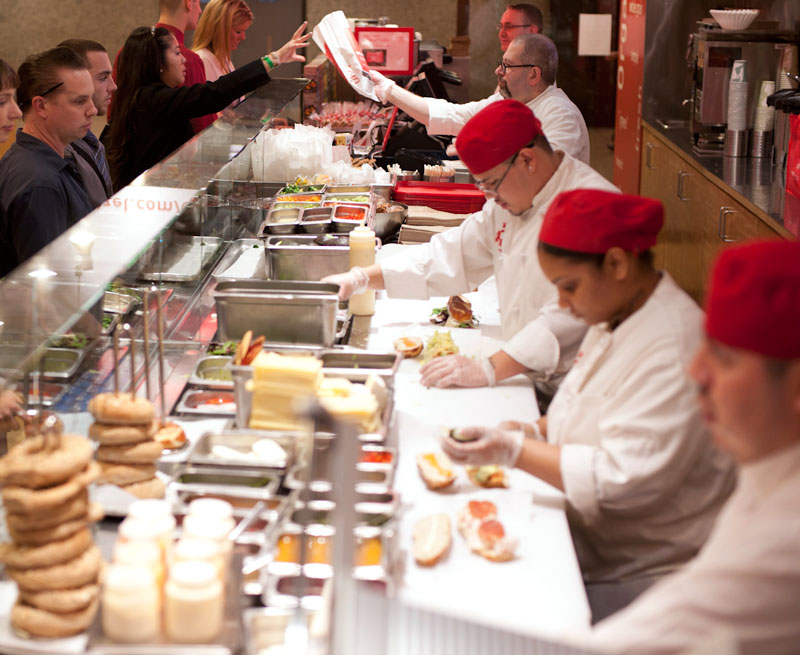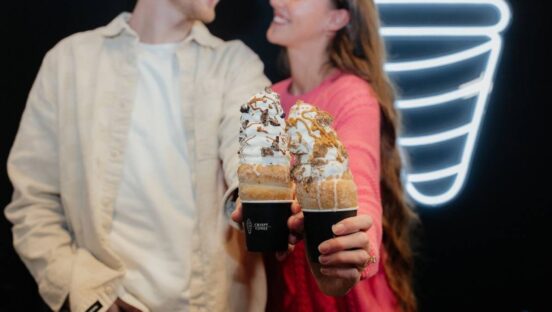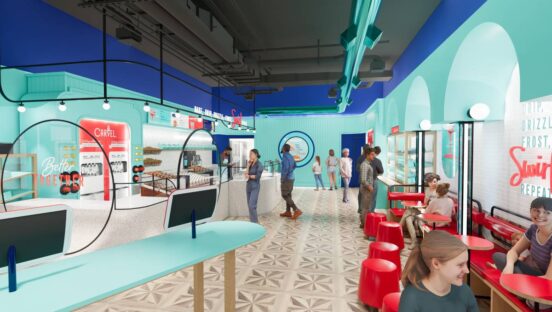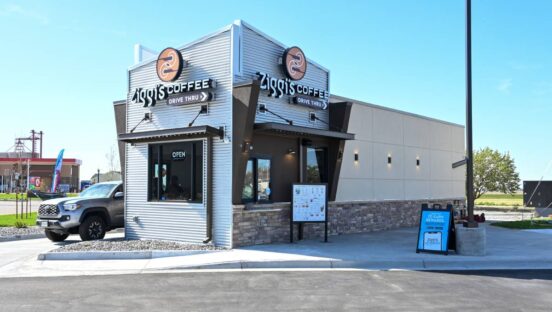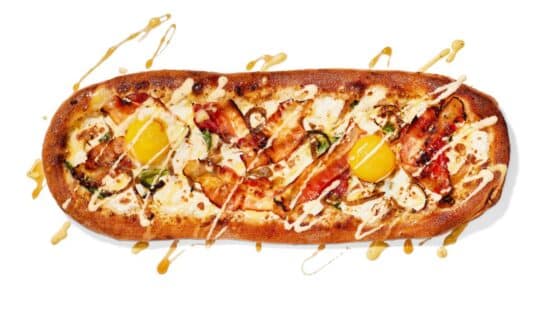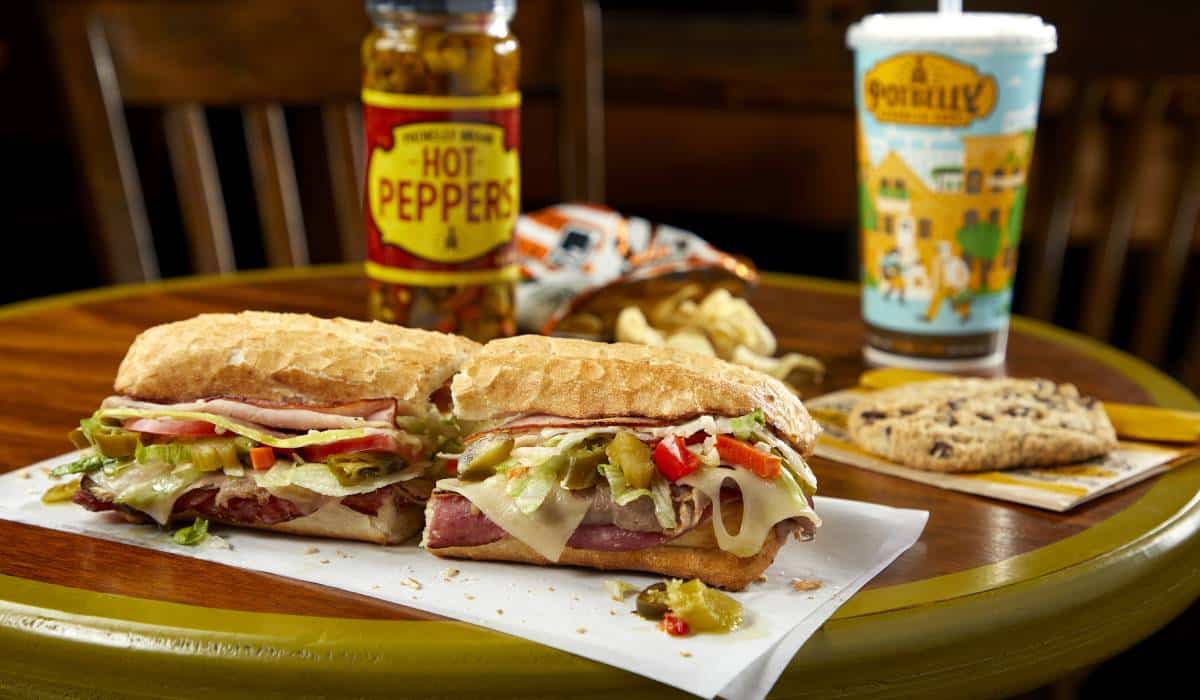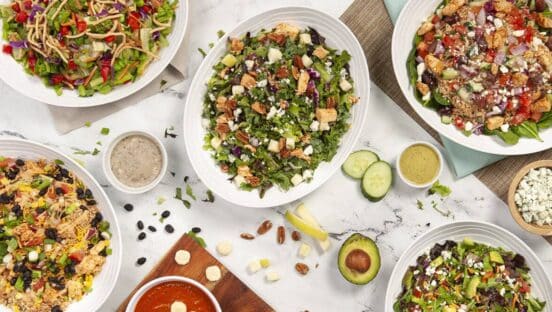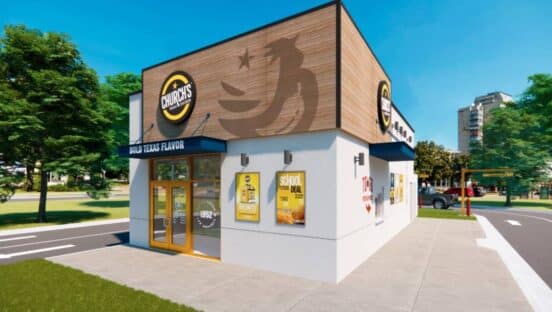Once a branding premium, going green has become a common business strategy influencing nearly every decision in the manufacturing and retail industries.
But many quick-service operators, struggling with tight margins and looking for cost effectiveness, remain hesitant at diving head first into the sustainability movement.
“The idea of green restaurants is still pretty new,” says Florian Pfahler, founder of Hannah’s Bretzel, the self-proclaimed “greenest sandwich shop in Chicago.”
Pfahler says it’s OK that quick service’s progression toward a greener industry has been slow. He says slow and steady progress can be the difference between a fad and a long-term sustainable development.
Part of the slow adaptation, Pfahler says, is that many of the tools that contribute to sustainable practices—like wind and solar power, or composting—are only now becoming widely available. And an unbalanced supply and demand, he says, has kept prices high for such tools.
“There will always be early adapters, and hopefully later acceptance, but until there are more players and more popularity,” prices will be high, he says.
Pfahler’s vision for Hannah’s began with a fast-casual experience during a U.S. visit from his native Germany. He ordered a New York–style deli sandwich, which came wrapped in two to three sheets of paper, packed in a bag with several napkins and packets of condiments he didn’t even order.
“I ate for two minutes and had this mountain of trash in front of me,” he says.
Biodegradable packaging became one of the first green elements at Hannah’s. On top of that, all locations today implement wind and solar power , and one location is composting. Electric vehicles are also in the pipeline.
Though green strategies may seem overwhelming, Pfahler says operators can begin to wrap their heads around sustainability through awareness. “Look at things in an environmentally savvy way,” he says. “There is a whole range of options with big benefits.”
Michael Oshman, CEO and founder of the Green Restaurant Association (GRA), says that if operators explored sustainability options, they would find that they do make financial sense. But, having certified more than 500 restaurants of all sizes, he says he’s familiar with the hesitation, which stems from a difference between perception and reality.
“Perception is very different now,” Oshman says, “but change takes a while and there are still a lot of messages that to be environmental is expensive.”
The standards laid forth by a GRA certification will save a restaurant between $1,000 and $8,000 a year, Oshman says. Getting certified takes an average of six months and costs as little as $50 a month, he says.
“It’s money down the drain via water, light, waste, equipment,” he says of not pursuing sustainable tools. “Intelligent organizations like Harvard and Microsoft and Fortune 500 companies are doing this. It saves money, it makes good business sense.”
It also makes good political sense, says Pfahler, who believes restaurateurs should get involved in government regulation to make green practices more available and affordable. “The government needs to lead where the country is going to be,” he says. “There needs to be an infrastructure that levels the playing field. If not, it will always be too expensive.”
Operators can also tap into local government and resources for help, Pfahler says. He encourages operators to call their local energy provider and talk about greener options, and to research which green-supportive regulations, credits, and incentives might already be in place in their municipality.
Pfahler adds that while wind and solar power save money, the cost of composting currently exceeds that of traditional trash disposal. But he says the benefits of being green are sometimes intangible; customers who understand a business’s green efforts might be more inclined to give the brand their loyalty.
This kind of connection is vital from a marketing perspective, says Jeff Fromm, executive vice president at Barkley Marketing Agency in Kansas City, Missouri. Sustainability is an especially important marketing tool with Millennials, the approximately 70 million people between ages 20 and 35, he says.
“Different consumer segments have different emotional and functional brand triggers,” Fromm says. Green is important to the Millennial generation, which has more spending power than any generation before it and is willing to pay more for a good cause, he says. Millennials also love fast casual as a category, Fromm says, which might make a green concept more likely to work in that segment.
But Fromm says that going green also demands transparency. “If you’re not 100 percent green, don’t say you are,” he says.
Those brands that do go all in with sustainability might find that success goes beyond sales.
“I feel good, my team feels good,” Pfahler says. “Hopefully we’re an example so others can see that if we can do it, they can, too.”

